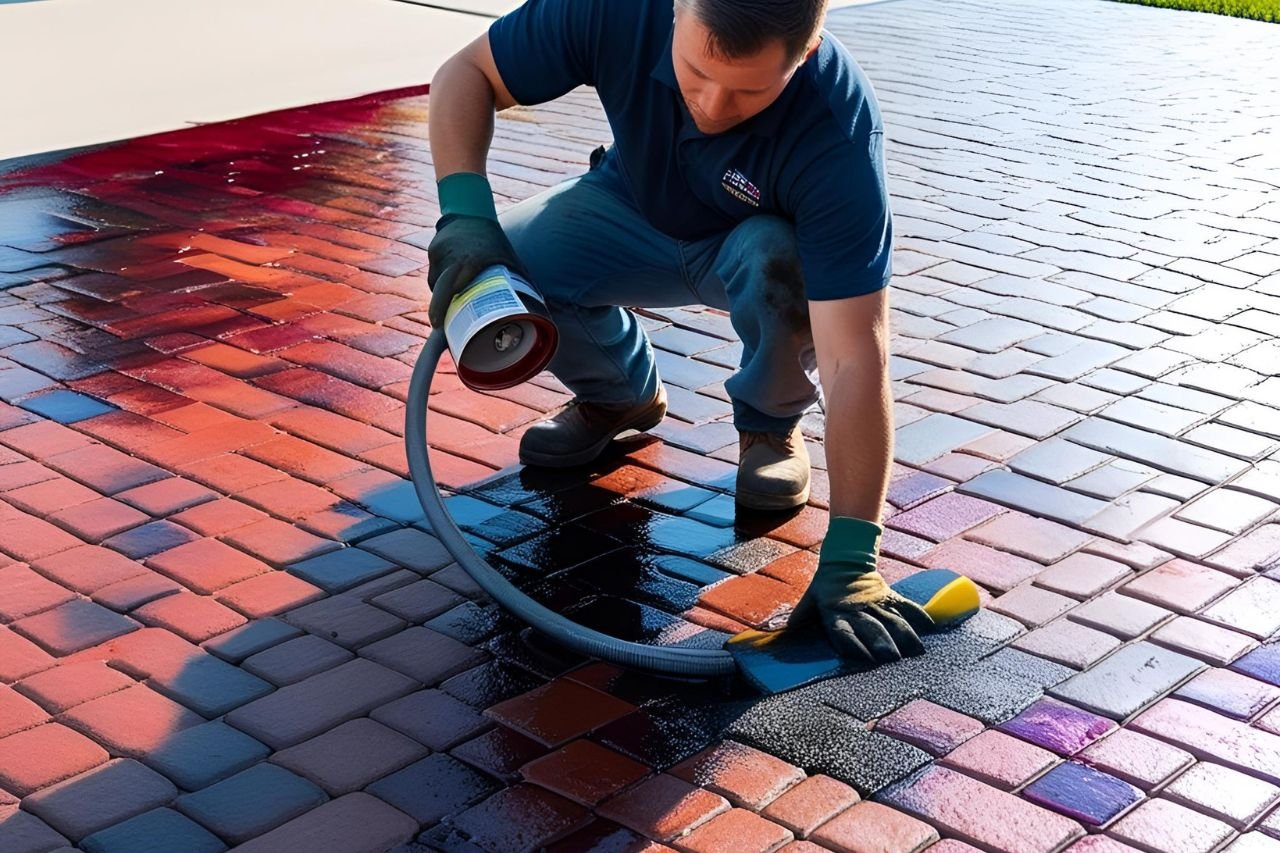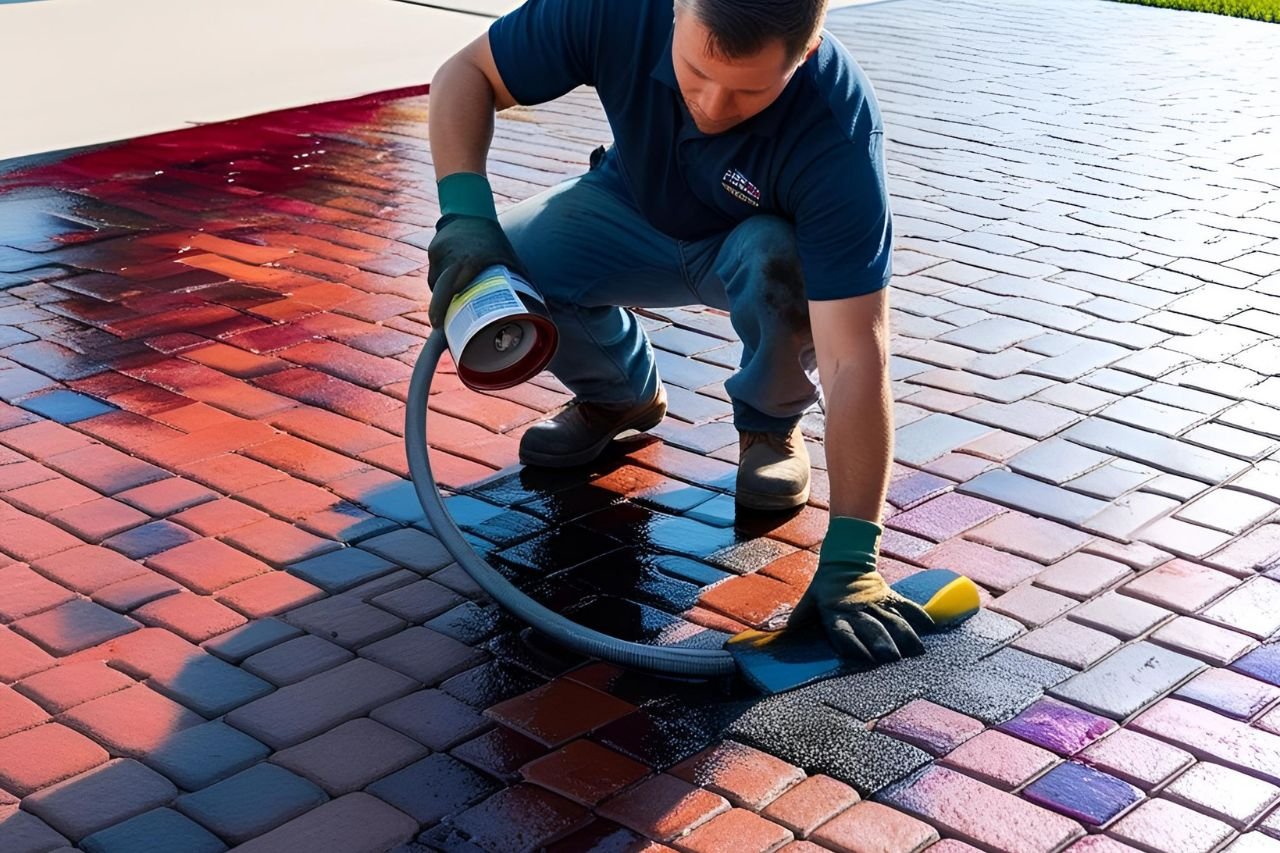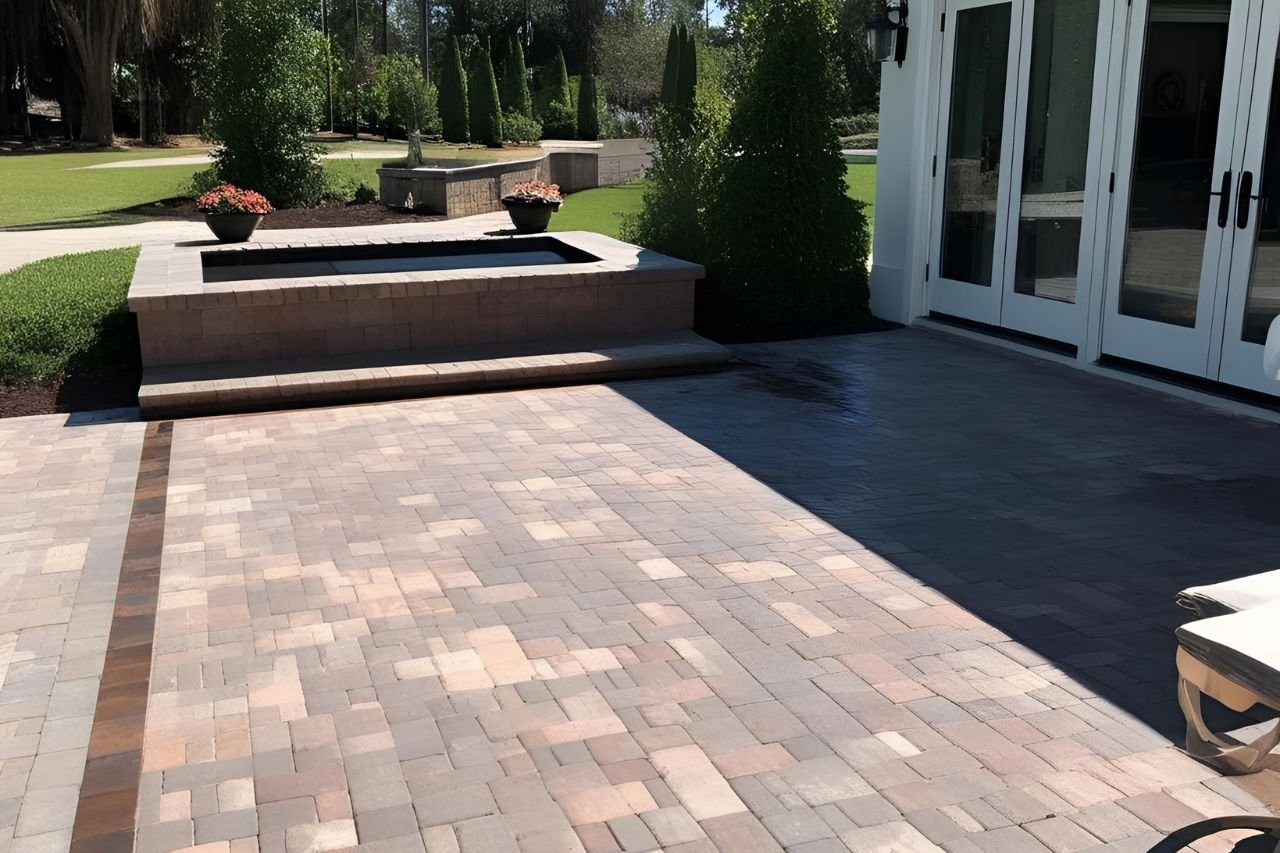Pavers should be sealed every 2–3 years in Wesley Chapel to maintain their durability and appearance. Regular sealing protects pavers from the region’s harsh weather conditions, reduces stains, and extends their lifespan.
Why Sealing Pavers Is Necessary
Sealing is an important part of paver maintenance, especially in Florida’s climate. Wesley Chapel experiences intense sunlight, heavy rain, and high humidity, which can wear down unsealed surfaces. Proper sealing creates a protective layer that minimizes damage and keeps outdoor spaces looking great.
How Often Should You Seal Pavers?
Pavers typically need resealing every 2–3 years. High-traffic areas like driveways may require more frequent resealing, while less-used surfaces like patios can maintain their sealant longer. Factors like weather exposure and installation quality also influence how often resealing is necessary.
Regular resealing maintains the protective barrier and ensures pavers continue to resist stains, fading, and erosion. For more guidance on the importance of sealing in Florida, learn about why paver sealing is essential for Wesley Chapel homeowners.
Factors That Influence Resealing Intervals
The following factors determine resealing frequency:
- Weather Exposure: Direct sunlight and rain speed up sealant deterioration.
- Usage Levels: Areas exposed to heavy foot or vehicle traffic wear out the sealant faster.
- Type of Pavers: Concrete pavers typically need resealing more frequently than natural stone.
How Can You Tell When Pavers Need Resealing?
Certain indicators show that it’s time to reseal your pavers:
- Fading Color: Pavers may lose their vibrancy due to UV exposure.
- Water Absorption: Unsealed surfaces absorb water, leading to stains and erosion.
- Weakened Joint Sand: Loose sand between pavers indicates sealant failure.
Recognizing these signs early prevents further damage. More information is available about identifying when pavers need resealing to keep your outdoor spaces protected.
When Should Pavers Be Sealed in Wesley Chapel?
Dry months are the ideal time for resealing pavers. Applying sealant during rainy seasons risks improper curing, which can lead to uneven protection. In Wesley Chapel, spring and summer offer consistent dry weather, allowing sealants to bond effectively.
Timing is critical to successful resealing. Learn about choosing the best season for sealing pavers in Florida to optimize results.
Why Is Regular Sealing Important?
Regular sealing ensures pavers remain functional and visually appealing. Benefits include:
- UV Protection: Sealants shield pavers from fading under strong sunlight.
- Reduced Maintenance: Sealed surfaces are easier to clean and less prone to stains.
- Extended Lifespan: Proper sealing prevents cracking, erosion, and mold growth.
What Are the Costs Associated with Paver Sealing?
The average cost for paver sealing ranges from $1.50 to $2.50 per square foot. This price includes high-quality sealants and professional application.
Which Sealant Types Are Best for Florida Pavers?
Popular sealant options include:
- Water-Based Sealants: Eco-friendly and ideal for natural stone.
- Solvent-Based Sealants: Provide a glossy finish and maximum protection.
- Hybrid Sealants: Combine the best features of water and solvent-based options.
Benefits of Scheduling Regular Sealing
| Benefit | Impact |
|---|---|
| Enhanced Durability | Prevents surface damage caused by moisture and UV rays. |
| Improved Appearance | Keeps colors vibrant and surfaces polished. |
| Low Maintenance | Reduces cleaning needs and protects against stains. |
| Cost Savings | Avoids costly repairs or replacements caused by long-term damage. |
Tips for Maintaining Sealed Pavers in Wesley Chapel
Following these maintenance tips will help extend sealant effectiveness:
- Clean Regularly: Pressure wash surfaces to remove debris and stains.
- Reapply Joint Sand: Stabilize loose sand between pavers every 1–2 years.
- Avoid Harsh Chemicals: Use mild detergents to prevent sealant degradation.
Frequently Asked Questions
1. Should pavers be resealed even if they look fine?
Yes, resealing is important to maintain protection and prevent damage over time.
2. Can resealing fix faded pavers?
Resealing enhances paver color and restores their original vibrancy.
3. What happens if pavers are not resealed regularly?
Unsealed pavers can absorb water, develop stains, and deteriorate faster.
4. Does sealing prevent weed growth?
Yes, sealing stabilizes joint sand to reduce weed sprouting between gaps.
5. How long does sealant last on outdoor pavers?
Sealants typically remain effective for 2–3 years, depending on usage and weather conditions.
Call Us Today
Sealing pavers every 2–3 years is essential for maintaining their durability and appearance in Wesley Chapel’s climate. Regular sealing prevents damage, enhances curb appeal, and keeps outdoor spaces functional. Explore our professional sealing services to protect your pavers and ensure long-lasting results.


